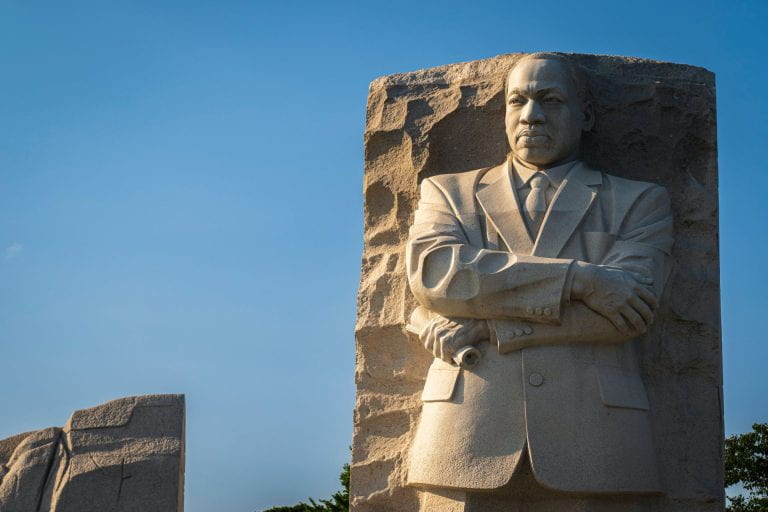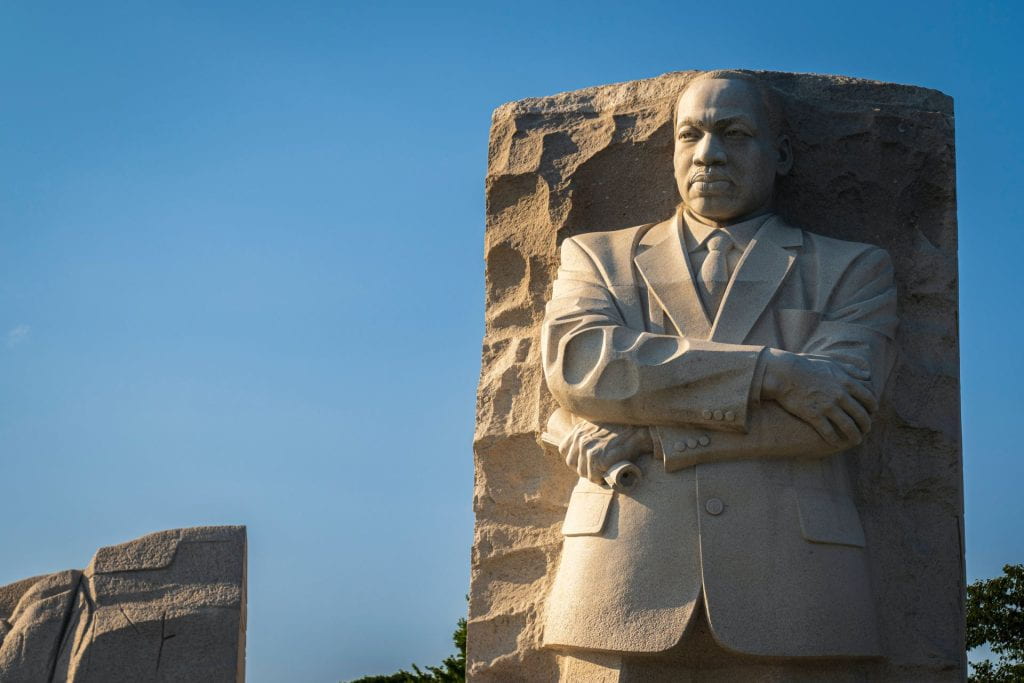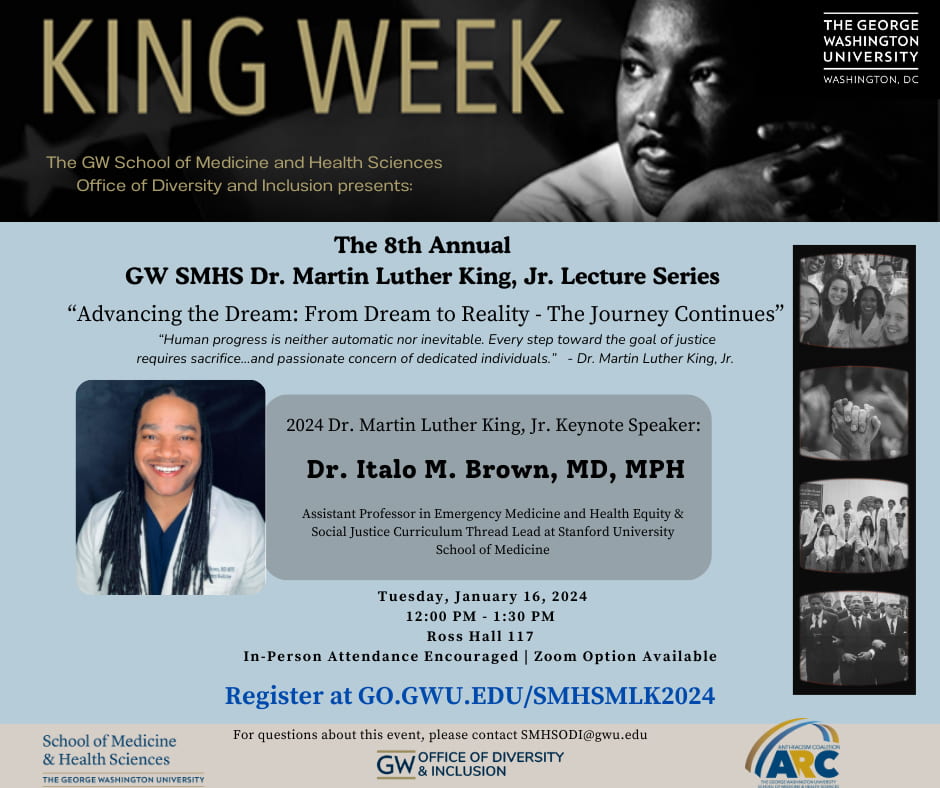
Himmelfarb Library has honored Martin Luther King, Jr. Day with numerous blog posts, and as we honor Dr. Martin Luther King, Jr. again today, we wanted to take a look back at some of our previous posts. These posts can serve as an opportunity to reflect on Dr. King’s life and legacy, celebrate the progress made toward continuing Dr. King’s work, and recommit to the work that still needs to be done.
Rev. Dr. Martin Luther King, Jr., and Health Equity
Rev. Dr. Martin Luther King, Jr. is well known for his passionate and thoughtful speeches that examined racial discrimination in the United States, the negative impacts of poverty, and the need for communities to rally behind and support vulnerable populations. His iconic “I Have a Dream” speech focused on education, access to housing, racial desegregation, and building an equitable country. Dr. King also fought to end racial inequities in healthcare.
On March 25, 1966, Dr. King spoke at a meeting of the Medical Committee for Human Rights. While the full transcript of this speech has not been discovered, fragments were printed in newspapers. This speech addressed the harsh realities that people of color, particularly Black Americans, faced in America and urged listeners to educate themselves on these inequities and work to dismantle systemic oppression. It was during a press conference documented by the Associated Press before this speech that Dr. King is thought to have spoken one of his most famous quotes about health according to Professor Charlene Galarneau:
“We are concerned about the constant use of federal funds to support this most notorious expression of segregation. Of all forms of inequality, injustice in health is the most shocking and the most inhuman because it often results in physical death” (Galarneau, 2018, p.5).
Dr. King’s speech was a call to action encouraging people to educate themselves about the issues of racism and economic inequality and use this knowledge to establish and maintain inclusive communities. If you’d like to learn more about Dr. King’s speech to the Medical Committee for Human Rights, read the full post!
Honoring Dr. Martin Luther King, Jr.’s Legacy Through Self-Education
If we are to take up Dr. King’s call to action and educate ourselves on the issues of racism and economic inequality, last year’s post about honoring King’s legacy through self-education can be a great place to start! This post highlights resources that can help you learn about these topics so you can put that knowledge into action!
Himmelfarb’s Antiracism in Healthcare Guide is a fantastic starting point! You’ll find links to organizations, including the SMHS Anti-Racism Coalition (ARC), student associations, and professional healthcare organizations focused on diversity and health justice issues. The Journal Special Collections tab includes journal issues and health news on antiracism issues. The Antiracism Books at Himmelfarb tab includes books and ebooks available at Himmelfarb.
This guide also provides links to podcasts, tutorials, and videos including:
- Beyond the White Coat: Do No Harm - Racism in Patient Care (Podcast episode)
- Words Matter: An Anti-bias Workshop for Health Care Professionals to Reduce Stigmatizing Language (Self-Guided Tutorial)
- Dismantling Racism Works Web Workbook (Tutorial)
- The Healthcare Divide (Video)
- Racial Equity Playlist from the American Public Health Association (Video playlist)
- Project Implicit - Test Your Bias (Self-Guided Tutorial)
To learn more about these resources, read the full post!
References: Galarneau, C. (2018). Getting King’s Words Right. Journal of Health Care for the Poor and Underserved, 29(1), 5–8. https://doi.org/10.1353/hpu.2018.0001









